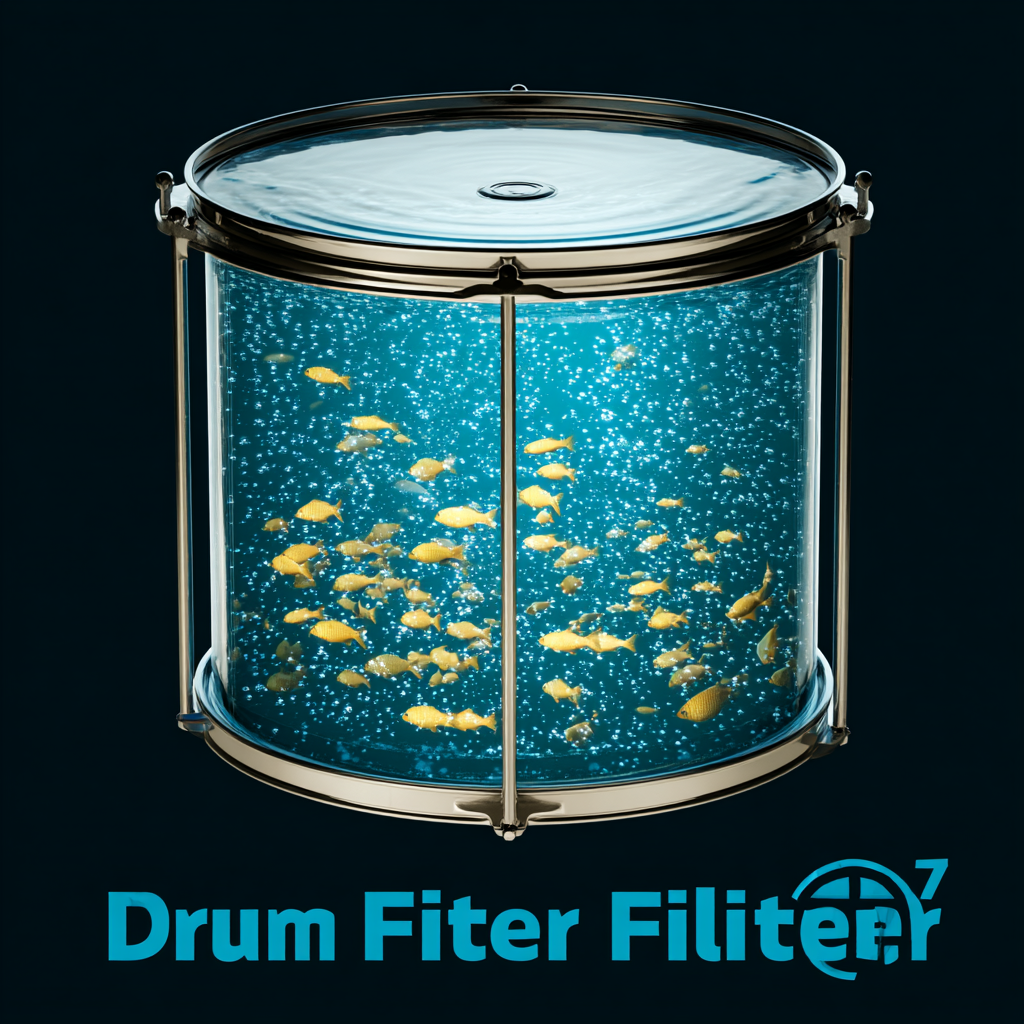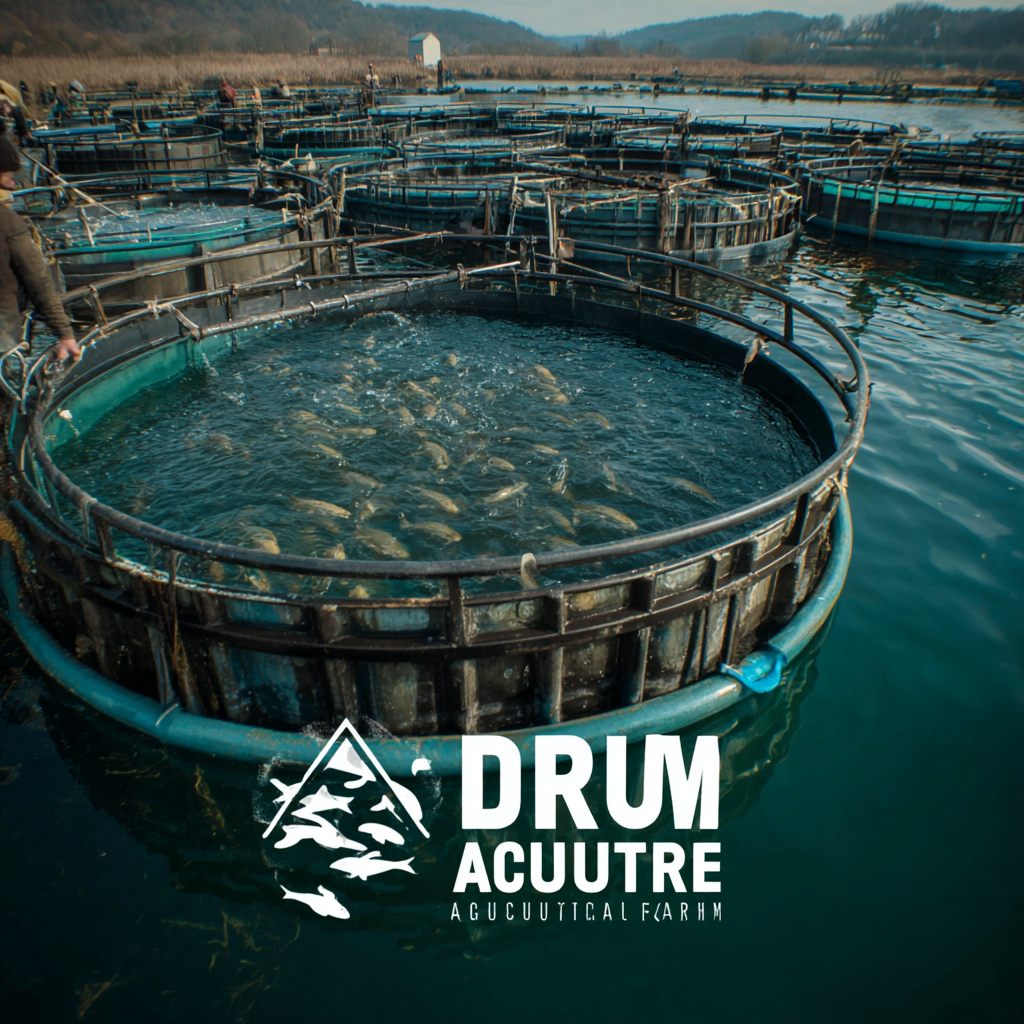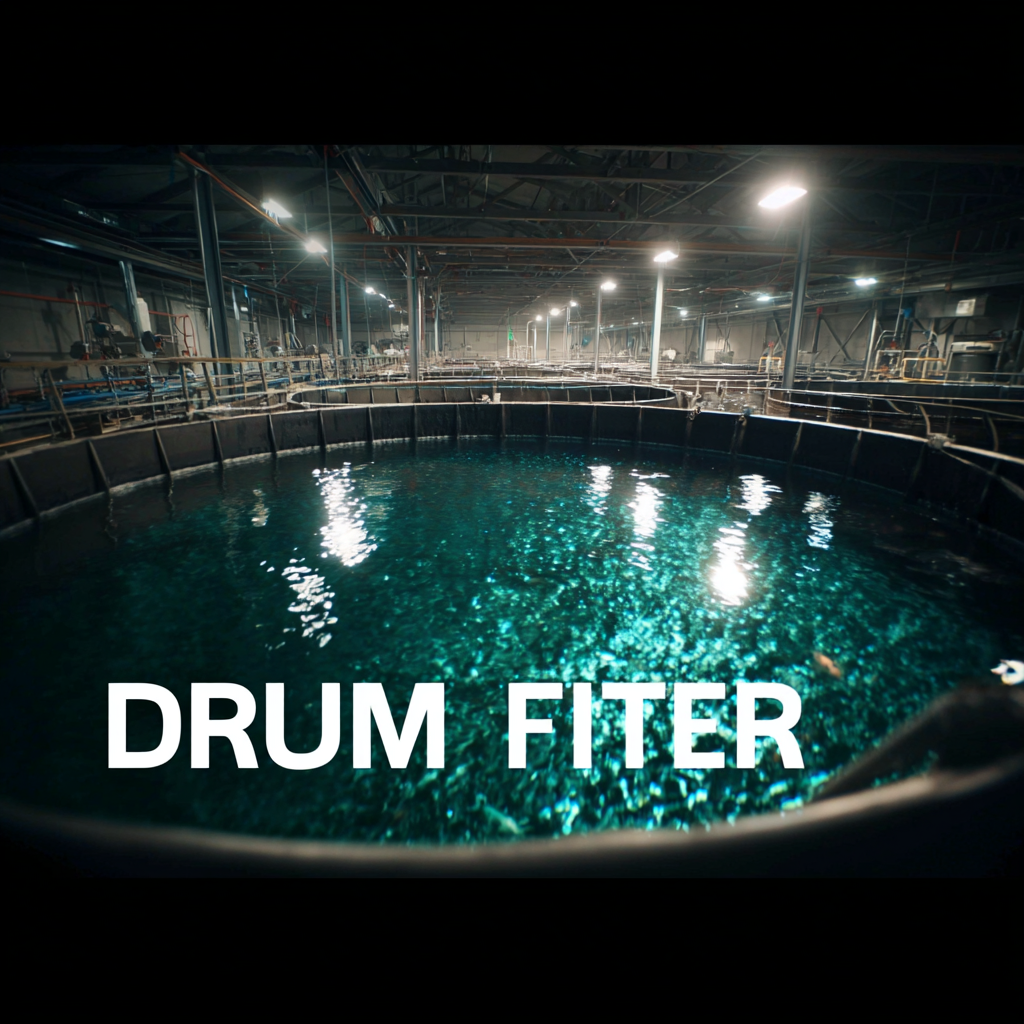 +86 13600513715
+86 13600513715



In the quest for sustainable fish farming, one technology stands out as a crucial element: Drum Filter Aquaculture. As the aquaculture industry continues to grow, the necessity for effective filtration systems becomes increasingly prominent. Drum filters are not just essential for maintaining water quality; they play a vital role in promoting the health and welfare of aquatic life. By effectively removing solids and harmful substances from water, drum filters enhance the overall efficiency of fish farming operations while reducing environmental impact. In this blog, we will explore seven compelling reasons why implementing the best drum filter aquaculture systems is indispensable for sustainable fish farming. Through thorough exploration, we will also touch upon the importance of industry import and export certifications, as well as offer practical insights into optimizing drum filter performance for a healthier aquaculture environment.

High-quality drum filters play a pivotal role in sustainable aquaculture practices by ensuring water clarity and quality, which are crucial for maintaining healthy aquatic ecosystems. According to a report from the Global Aquaculture Alliance, effective filtration systems can reduce particulate matter by up to 90%, significantly improving water conditions for fish and reducing the need for chemical treatments. This is especially important as aquaculture continues to expand, with the Food and Agriculture Organization (FAO) noting that fish farming accounts for over 50% of the world's seafood production.
Implementing advanced drum filter technology not only enhances fish welfare but also boosts productivity. Data from the Aquaculture and Fisheries Journal suggests that operations using superior filtration systems can see up to a 20% increase in fish growth rates. It's clear that investing in high-quality drum filters is essential for aquaculture's sustainability.
Tips: Ensure regular maintenance of your drum filter system to prevent clogging and maintain optimal performance. Also, monitor water parameters frequently to assess filter effectiveness and make necessary adjustments for different fish species' needs. Utilizing automated systems can further optimize performance and reduce labor costs in the long run.
Efficient filtration systems, such as drum filters, play a crucial role in maintaining the health of aquaculture environments. According to a report by the Food and Agriculture Organization (FAO), over 50% of fish diseases are linked to poor water quality, underscoring the need for robust filtration systems. Drum filters significantly improve water clarity by removing particulate matter and harmful pathogens, which helps in reducing the overall stress on fish. Healthy fish are not only more resilient to diseases but also exhibit improved growth rates, with studies indicating that fish raised in optimal water conditions can grow up to 30% faster than those in poorly filtered systems.
Moreover, the economic implications of efficient filtration cannot be overlooked. The International Journal of Aquaculture highlighted that aquaculture operations with high-quality filtration systems experience lower mortality rates, which can save producers up to 25% in losses. Additionally, maintaining optimal water quality through advanced filtration methods leads to enhanced feed conversion ratios. Fish can allocate more energy toward growth rather than fighting off diseases, resulting in an overall increase in yield that is vital for meeting the rising global demand for seafood. Hence, investing in drum filter technology is not just a matter of fish health, but a strategic move for sustainable and profitable fish farming practices.
| Benefits | Description | Impact on Fish Farming |
|---|---|---|
| Improved Water Quality | Removes particulate matter and harmful substances. | Promotes healthier fish and reduces stress. |
| Enhanced Growth Rates | Cleaner water leads to better feeding conditions. | Increases yield and profitability for farmers. |
| Disease Prevention | Reduces pathogens and harmful bacteria. | Minimizes mortality rates and the need for treatments. |
| Regulatory Compliance | Meets environmental regulations for aquaculture. | Ensures sustainability and reduces fines. |
| Reduced Labor Costs | Automated cleaning processes save time and effort. | Allows staff to focus on other important tasks. |
| Longevity of Systems | High-quality filtration protects equipment. | Reduces maintenance costs and downtime. |
| Eco-Friendly Practices | Promotes sustainable fish farming operations. | Boosts the farm's reputation and attracts consumers. |
 The integration of advanced technology in drum filters is revolutionizing aquaculture, making it a cornerstone of sustainable fish farming practices. Modern drum filters are equipped with sophisticated sensors and automated systems that significantly enhance their performance. These innovations allow for real-time monitoring of water quality, ensuring optimal conditions for fish growth by effectively removing particulate matter and harmful pollutants. The ability to maintain clean water environments plays a crucial role in reducing the risk of disease among fish populations, leading to healthier stocks and higher yields.
The integration of advanced technology in drum filters is revolutionizing aquaculture, making it a cornerstone of sustainable fish farming practices. Modern drum filters are equipped with sophisticated sensors and automated systems that significantly enhance their performance. These innovations allow for real-time monitoring of water quality, ensuring optimal conditions for fish growth by effectively removing particulate matter and harmful pollutants. The ability to maintain clean water environments plays a crucial role in reducing the risk of disease among fish populations, leading to healthier stocks and higher yields.
In addition to improving water quality, advanced drum filters contribute to resource efficiency in aquaculture. With automated backwashing and self-cleaning capabilities, these filters minimize labor requirements and reduce water wastage, thus supporting sustainable practices. The integration of energy-efficient designs further lowers the environmental impact, aligning with the growing demand for eco-friendly farming solutions. By leveraging cutting-edge technology, aquaculture operations can enhance their productivity while preserving vital ecosystems, marking a significant step towards a more sustainable future in fish farming.
In the realm of aquaculture, water quality is paramount for the health and growth of fish. The implementation of drum filters significantly enhances water quality management, making them indispensable in sustainable fish farming practices. A study by the Aquaculture Research journal indicates that proper filtration systems can reduce nitrogen levels in aquaculture systems by up to 60%, thus minimizing the risk of toxic outbreaks and ensuring a healthier environment for aquatic life.

Drum filters operate by mechanically removing solids and organic matter from the water, which helps maintain optimal conditions for fish. This process not only aids in controlling the levels of ammonia and nitrites—substances harmful to fish—but also supports the overall ecological balance within the farming system. According to the International Journal of Fisheries Management, fish farms equipped with advanced filtration systems, like drum filters, can achieve remarkable reductions in suspended solids, improving water clarity by 70%. This not only promotes fish health but also aligns with regulatory standards for aquaculture operations, paving the way for sustainable practices that protect both marine ecosystems and generate better economic returns for fish farmers.
The drum filter has emerged as a crucial component in aquaculture, particularly in sustainable fish farming practices. As the demand for high-quality seafood continues to rise, manufacturers are stepping up their game to meet international standards while delivering exceptional products. A recent report from the Aquaculture Industry Association indicates that drum filter systems improve water quality, reduce the need for chemical treatments, and promote the overall health of aquatic life, thereby supporting sustainability in fish farming.
Global trends in drum filter manufacturing reveal a significant shift, particularly towards Chinese-made systems that uphold rigorous quality control measures. According to the International Standards Organization (ISO), Chinese manufacturers have increasingly adhered to ISO 9001 standards, ensuring their products qualify for international markets. This shift not only reflects growing global trust in Chinese manufacturing but also highlights a commitment to quality and sustainability in aquaculture. With projections indicating a compounded annual growth rate (CAGR) of over 6% in the aquaculture filtration market until 2027, the synergy of quality Chinese manufacturing and ecological responsibility presents a robust solution for sustainable fish farming worldwide.
This chart illustrates the significant benefits of using drum filters in sustainable fish farming practices over traditional methods.
